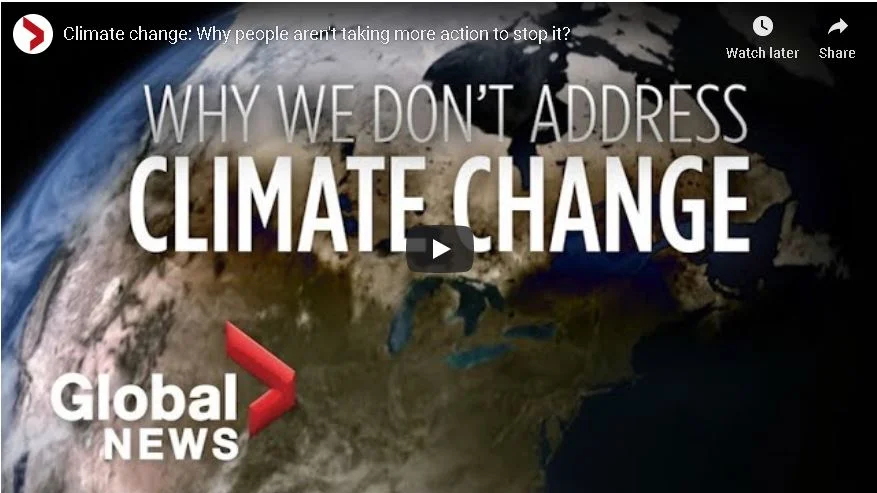Some researchers thought her team wouldn't even be able to detect an impact from the fires because the Athabasca River was already looking like tea before the fires. Heavy rains tend to send hot fudge-looking runoff from the land into the river, making it look like chocolate milk, she said. Arriving after the fires, Emelko said she could see that hot fudge-looking flow enter the Athabasca's waters as ash, likely carrying nutrients like phosphorous and carbon, made the water supply challenging for treatment processes. "Those [workers] were living in the water treatment plant, working hard to make sure that people could return to their homes and at least have safe water to drink," Emelko told Day 6 host Brent Bambury.
Meet the scientists and their underwater drones tackling the 'weirdly complicated' world of ocean carbon
It's that rarest of rare conditions along coastal Newfoundland: a dead calm day. By 7 a.m., the crew aboard the fishing boat Belle of the Bay are taking full advantage of it, steaming out of the harbour in Heart's Content under dazzling July sunshine, with their sights set on a prized catch in the middle of Trinity Bay. It's not fish they're after. The object awaiting them looks like a mashup between a torpedo, a banana, and a Dash 8 — a type of underwater drone, called a glider.
What is blue carbon and why is it vital for mitigating Canada's carbon emissions?
Marlow Pellatt spent time on Vancouver Island, taking samples of soil from deep underground and wading through water to understand the biodiversity in the area. To an onlooker, it may seem like he’s playing in mud, but he’s actually researching how important coastal ecosystems are in Canada’s fight against climate change. Pellatt, a coastal ecologist with Parks Canada, led a team that was part of an international effort to study and preserve coastal systems this year. The joint initiative involves Canada, the U.S. and Mexico to study "blue carbon" -- the carbon stored in marine ecosystems.
EDITORIAL: Planet under stress
In his 1963 science fiction novel, author Walter Tevis writes about an extraterrestrial who travels to Earth in a grandiose quest to ship water back to his dying planet. If the novel was re-released today, the extraterrestrial (who, incidentally, was played by rock legend David Bowie in the 1976 movie version) would more likely take one look at our once pristine home and keep on moving in hopes of finding a more inviting celestial object.
Viruses are not always the bad guy
Every couple of weeks, postdoctoral researcher Yosuke Yamada grabs a bucket and makes the short drive from his lab at Okinawa Institute of Science and Technology to one of the nearby ports on the southerly Japanese island of the same name. He passes Okinawa’s iconic beaches, where snorkelers visit clownfish and coral reefs, and continues to the fishing wharfs. After Yamada scoops a bucketful of water from between the boats, he heads back to his lab to study components of the island’s ecosystem that are so small they must be observed using a microscope: bacteria, viruses, algae, and fungi — the ocean’s microbes.
Water shortages and yearly floods: Canada won’t escape climate crisis, UN report says
Damage to Earth’s oceans and glaciers from climate change is outpacing the ability of governments to protect them, a new report from an international scientific panel concludes. “The capacity of governance systems in polar and ocean regions to respond to climate change impacts has strengthened recently,” says the Intergovernmental Panel on Climate Change. “But this development is not sufficiently rapid or robust to adequately address the scale of increasing projected risks.”
Spring run-off to blame for Edmonton's smelly tap water
If your tap water smells like chlorine, your schnozz has sniffed out a common springtime phenomenon in Edmonton. The spring thaw has made the city's drinking water more pungent than usual. Run-off from melting snow and river ice has washed higher than normal volumes of organic material into the water supply, said Shane Harnish, Epcor's senior manager of analytical operations. It's something workers at Edmonton's water treatment plants contend with every year. "What you're noticing is the chlorine smell in our water, and it's due to the chlorine reacting with some of this organic material," Harnish said in an interview Wednesday with CBC Radio's Edmonton AM.









